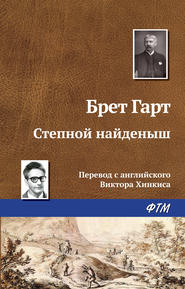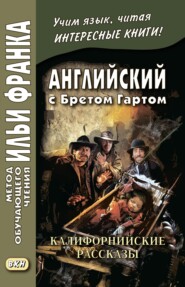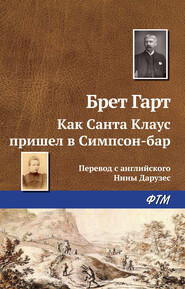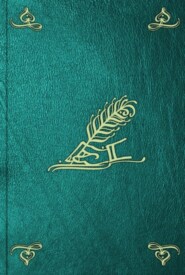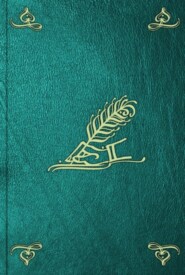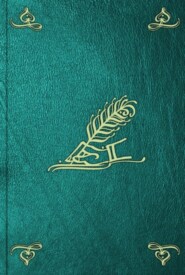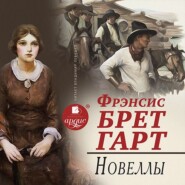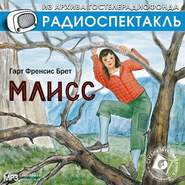По всем вопросам обращайтесь на: info@litportal.ru
(©) 2003-2025.
✖
Gabriel Conroy
Автор
Год написания книги
2017
Настройки чтения
Размер шрифта
Высота строк
Поля
Jack pressed his friend's hand.
"There's my diamond pin up the spout at Wingdam, and the money gone to Lawyer Maxwell to pay witnesses for that old fool Gabriel. And then when Gabriel and me was escaping I happened to strike the very man, Perkins, who was Gabriel's principal witness, and he was dead broke, and I had to give him my solitaire ring to help him get away and be on hand for Gabriel. And Olly's got my gold specimen to be made into a mug for that cub of that old she tiger – Gabriel's woman – that Madame Devarges. And my watch – who has got my watch?" said Mr. Hamlin, reflectively.
"Never mind those things, Jack. Have you any word to send – to – anybody?"
"No."
There was a long pause. In the stillness the ticking of a clock on the mantel became audible. Then there was a laugh in the ante-room, where a professional brother of Jack's had been waiting, slightly under the influence of grief and liquor.
"Scotty ought to know better than to kick up a row in a decent woman's house," whispered Jack, faintly. "Tell him to dry up, or I'll" —
But his voice was failing him, and the sentence remained incomplete.
"Doc – " (after a long effort).
"Jack."
"Don't – let – on – to Pete – I fooled – him."
"No, Jack."
They were both still for several minutes. And then Dr. Duchesne softly released his hand and laid that of his patient, white and thin, upon the coverlid before him. Then he rose gently and opened the door of the ante-room. Two or three eager faces confronted him. "Pete," he said, gravely, "I want Pete – no one else."
The old negro entered with a trembling step. And then catching sight of the white face on the pillow, he uttered one cry – a cry replete with all the hysterical pathos of his race, and ran and dropped on his knees beside – it! And then the black and the white face were near together, and both were wet with tears.
Dr. Duchesne stepped forward and would have laid his hand gently upon the old servant's shoulder. But he stopped, for suddenly both of the black hands were lifted wildly in the air, and the black face with rapt eyeballs turned toward the ceiling, as if they had caught sight of the steadfast blue beyond. Perhaps they had.
"O de Lord God! whose prechiss blood washes de brack sheep and de white sheep all de one colour! O de Lamb ob God! Sabe, sabe dis por', dis por' boy. O Lord God, for MY sake. O de Lord God, dow knowst fo' twenty years Pete, ole Pete, has walked in dy ways – has found de Lord and Him crucified! – and has been dy servant. O de Lord God – O de bressed Lord, ef it's all de same to you, let all dat go fo' nowt. Let ole Pete go! and send down dy mercy and forgiveness fo' him!"
CHAPTER X.
IN THE OLD CABIN AGAIN
There was little difficulty in establishing the validity of Grace Conroy's claim to the Conroy grant under the bequest of Dr. Devarges. Her identity was confirmed by Mr. Dumphy – none the less readily that it relieved him of a distressing doubt about the late Mrs. Dumphy, and did not affect his claim to the mineral discovery which he had purchased from Gabriel and his wife. It was true that since the dropping of the lead the mine had been virtually abandoned, and was comparatively of little market value. But Mr. Dumphy still clung to the hope that the missing lead would be discovered.
He was right. It was some weeks after the death of Mr. Hamlin that Gabriel and Olly stood again beneath the dismantled roof-tree and bare walls of his old cabin on Conroy Hill. But the visit this time was not one of confidential disclosure nor lonely contemplation, but with a practical view of determining whether this first home of the brother and sister could be repaired and made habitable, for Gabriel had steadily refused the solicitations of Grace that he should occupy his more recent mansion. Mrs. Conroy and infant were at the hotel.
"Thar, Olly," said Gabriel, "I reckon that a cartload o' boards and a few days' work with willin' hands, will put that thar shanty back ag'in ez it used to be when you and me waz childun."
"Yes," said Olly, abstractedly.
"We've had good times yer, Olly, you and me!"
"Yes," said Olly, with eyes still afar.
Gabriel looked down – a great way – on his sister, and then suddenly took her hand and sat down upon the doorstep, drawing her between his knees after the old fashion.
"Ye ain't hearkenin' to me, Olly dear!"
Whereat Miss Olympia instantly and illogically burst into tears, and threw her small arms about Gabriel's huge bulk. She had been capricious and fretful since Mr. Hamlin's death, and it may be that she embraced the dead man again in her brother's arms. Hut her outward expression was, "Gracey! I was thinking o' poor Gracey, Gabe!"
"Then," said Gabriel, with intense archness and cunning, "you was thinkin' o' present kempany, for ef I ain't blind, that's them coming up the hill."
There were two figures slowly coming up the hill outlined against the rosy sunset. A man and woman – Arthur Poinsett and Grace Conroy. Olly lifted her head and rose to her feet. They approached nearer. No one spoke. The next instant – impulsively I admit, inconsistently I protest – the sisters were in each other's arms. The two men looked at each other, awkward, reticent, superior.
Then the women having made quick work of it, the two men were treated to an equally illogical, inconsistent embrace. When Grace at last, crying and laughing, released Gabriel's neck from her sweet arms, Mr. Poinsett assumed the masculine attitude of pure reason.
"Now that you have found your sister, permit me to introduce you to my wife," he said to Gabriel, taking Grace's hand in his own.
Whereat Olly flew into Poinsett's arms, and gave him a fraternal and conciliatory kiss. Tableau.
"You don't look like a bride," said the practical Olly to Mrs. Poinsett, under her breath; "you ain't got no veil, no orange blossoms – and that black dress" —
"We've been married seven years, Olly," said the quick-eared and ready-witted Arthur.
And then these people began to chatter as if they had always been in the closest confidence and communion.
"You know," said Grace to her brother, "Arthur and I are going East, to the States, to-morrow, and really, Gabe, he says he will not leave here until you consent to take back your house – your wife's house, Gabe. You know WE" (there was a tremendous significance in this newly-found personal plural), "WE have deeded it all to you."
"I hev a dooty to per-form to Gracey," said Gabriel Conroy, with astute deliberation, looking at Mr. Poinsett, "a dooty to thet gal, thet must be done afore any transfer of this yer proputty is made. I hev to make restitution of certain papers ez hez fallen casooally into my hands. This yer paper," he added, drawing a soiled yellow envelope from his pocket, "kem to me a week ago, the same hevin' lied in the Express Office sens the trial. It belongs to Gracey, I reckon, and I hands it to her."
Grace tore open the envelope, glanced at its contents hurriedly, uttered a slight cry of astonishment, blushed, and put the paper into her pocket.
"This yer paper," continued Gabriel, gravely, drawing another from his blouse, "was found by me in the Empire Tunnel the night I was runnin' from the lynchers. It likewise b'longs to Gracey – and the world gin'rally. It's the record of Dr. Devarges' fust discovery of the silver lead on this yer hill, and," continued Gabriel, with infinite gravity, "wipes out, so to speak, this yer mineral right o' me and Mr. Dumphy and the stockholders gin'rally."
It was Mr. Poinsett's turn to take the paper from Gabriel's hands. He examined it attentively by the fading light. "That is so," he said, earnestly; "it is quite legal and valid."
"And thar ez one paper more," continued Gabriel, this time putting his hand in his bosom and drawing out a buckskin purse, from which he extracted a many-folded paper. "It's the grant that Dr. Devarges gave Gracey, thet thet pore Mexican Ramirez ez – maybe ye may remember – waz killed, handed to my wife, and July, my wife" – said Gabriel, with a prodigious blush – "hez been sorter keepin' IN TRUST for Gracey!"
He gave the paper to Arthur, who received it, but still retained a warm grasp of Gabriel's massive hand.
"And now," added Gabriel, "et's gettin' late, and I reckon et's about the square thing ef we'd ad-journ this yer meeting to the hotel, and ez you're goin' away, maybe ye'd make a partin' visit with yer wife, forgettin' and forgivin' like, to Mrs. Conroy and the baby – a pore little thing – that ye wouldn't believe it, Mr. Poinsett, looks like me!"
But Olly and Grace had drawn aside, and were in the midst of an animated conversation. And Grace was saying —
"So I took the stone from the fire, just as I take this" (she picked up a fragment of the crumbling chimney before her); "it looked black and burnt just like this; and I rubbed it hard on the blanket so, and it shone, just like silver, and Dr. Devarges said" —
"We are going, Grace," interrupted her husband, "we are going to see Gabriel's wife." Grace hesitated a moment, but as her husband took her arm he slightly pressed it with a certain matrimonial caution, whereupon with a quick impulsive gesture, Grace held out her hand to Olly, and the three gaily followed the bowed figure of Gabriel, as he strode through the darkening woods.
CHAPTER XI.
THE RETURN OF A FOOTPRINT
I regret that no detailed account of the reconciliatory visit to Mrs. Conroy has been handed down, and I only gather a hint of it from after comments of the actors themselves. When the last words of parting had been said, and Grace and Arthur had taken their seats in the Wingdam coach, Gabriel bent over his wife's bedside, —
"It kinder seemed ez ef you and Mr. Poinsett recognised each other at first, July," said Gabriel.
"I have seen him before – not here! I don't think he'll ever trouble us much, Gabriel," said Mrs. Conroy, with a certain triumphant lighting of the cold fires of her grey eyes. "But look at the baby. He's laughing! He knows you, I declare!" And in Gabriel's rapt astonishment at this unprecedented display of intelligence in one so young, the subject was dropped.






